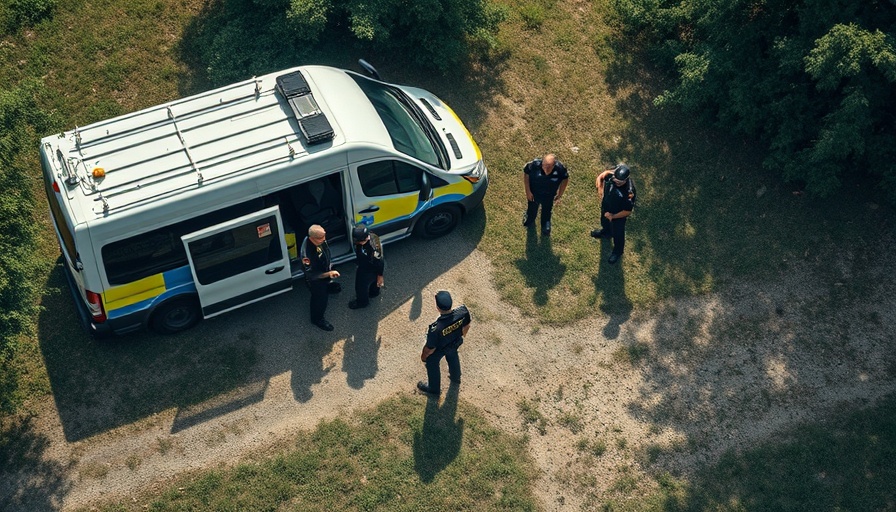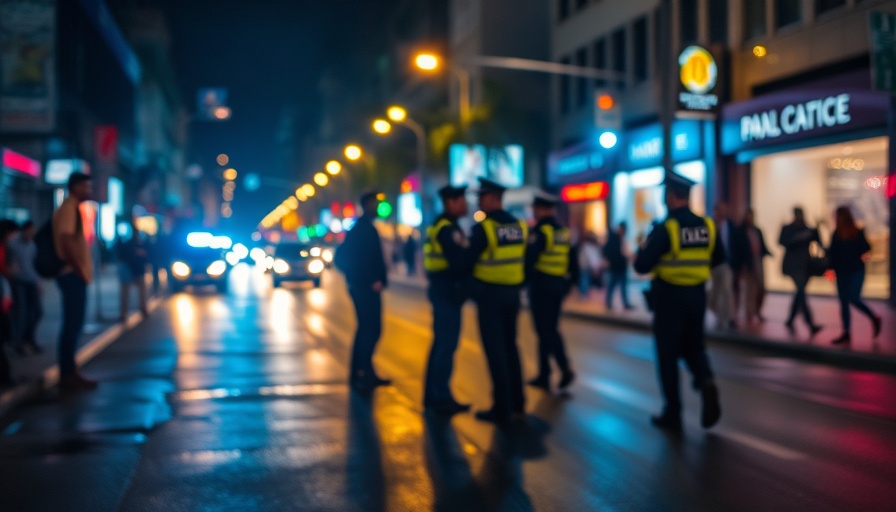
Philadelphia Shooting: A Disturbing Incident Raises Questions
The shocking events that unfolded outside Friends Hospital in Philadelphia have sparked renewed discussions about police training, mental health interventions, and officer safety. A man who voluntarily sought help for a mental health crisis seized a police officer's firearm, injuring the officer before being fatally shot himself. This incident not only underscores the unpredictability of police encounters with individuals in crises but also highlights the urgent need for effective policies and training.
The Complexity of Mental Health Interventions
Too often, police officers find themselves on the frontlines of mental health crises, yet they are not adequately trained to handle such sensitive situations. In this instance, the man was initially cooperative, agreeing to go to the hospital voluntarily. However, upon arrival, he became combative, which raises questions about the adequacy of the de-escalation techniques employed. Mental health professionals advocate for specialized crisis intervention teams (CIT) that can better assess and manage situations involving mental illness, potentially reducing the risk of violence.
Officers' Safety and Equipment: An Ongoing Debate
This incident has further catalyzed the discourse around police officer safety and the equipment they use, specifically regarding body armor and firearms protocols. The injured officer in this scenario was struck at the base of his bullet-resistant vest, which undoubtedly mitigated more severe injuries. Mayor Cherelle Parker remarked that a few inches made a significant difference in this alarming event. This emphasizes the critical need for continual advancements in officer safety equipment and well-structured training programs that prepare officers for violent confrontations.
The Role of Community and Police Relations
The complexities of police-citizen interactions, especially in crises, necessitate a strong relationship built on trust and transparency. The Philadelphia incident exemplifies why fostering open communication between law enforcement agencies and the communities they serve remains imperative. Community engagement initiatives can help demystify the law enforcement process and cultivate environments where residents feel safe to seek help without fear of escalation. Models of collaborative policing—where community members actively participate in public safety dialogues—can contribute to minimizing such incidents.
Envisioning a Safer Future: The Way Forward
Looking forward, it’s crucial for law enforcement agencies to adopt innovative technologies and strategies that emphasize officer wellness and mental health readiness. Psychologically preparing officers not just for routine duties but also for high-stress interactions is essential. Furthermore, integrating AI and analytics into police work can lead to more efficient resource deployment, reducing the chances of encounters that can escalate into violence.
Answering the Call: Improving Training and Protocol
In light of the Philadelphia shooting and similar occurrences nationwide, police departments must critically evaluate their training protocols. Effective training should include not only de-escalation techniques but also mental health crisis management and the proper use of equipment in high-pressure situations. Adopting comprehensive training programs that prioritize officer safety and the community's well-being can set the stage for meaningful reform.
The need for reform is pressing, asking police departments and policymakers to reassess current strategies and training guidelines. As part of this discourse, it is imperative for law enforcement leadership to embrace innovative practices that ensure the safety of both officers and civilians alike.
This incident serves as a stark reminder of the complexities faced by law enforcement today—a challenge that demands not only immediate action but also long-term strategic planning. As communities and institutions rally for change, let us continue to prioritize both officer wellness and public safety. Ensuring the mental health of our officers and reimagining policing strategies could lead to breakthroughs in public safety and community relations.
 Add Row
Add Row  Add
Add 

 Add Element
Add Element 




Write A Comment